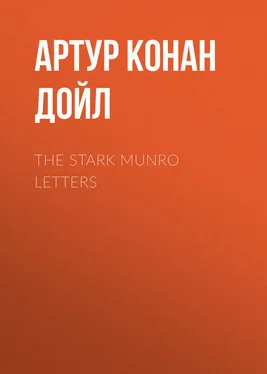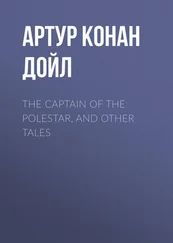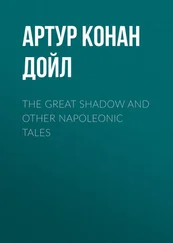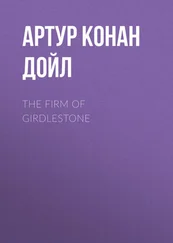Артур Дойл - The Stark Munro Letters
Здесь есть возможность читать онлайн «Артур Дойл - The Stark Munro Letters» — ознакомительный отрывок электронной книги совершенно бесплатно, а после прочтения отрывка купить полную версию. В некоторых случаях можно слушать аудио, скачать через торрент в формате fb2 и присутствует краткое содержание. Жанр: foreign_antique, foreign_prose, на английском языке. Описание произведения, (предисловие) а так же отзывы посетителей доступны на портале библиотеки ЛибКат.
- Название:The Stark Munro Letters
- Автор:
- Жанр:
- Год:неизвестен
- ISBN:нет данных
- Рейтинг книги:3 / 5. Голосов: 1
-
Избранное:Добавить в избранное
- Отзывы:
-
Ваша оценка:
- 60
- 1
- 2
- 3
- 4
- 5
The Stark Munro Letters: краткое содержание, описание и аннотация
Предлагаем к чтению аннотацию, описание, краткое содержание или предисловие (зависит от того, что написал сам автор книги «The Stark Munro Letters»). Если вы не нашли необходимую информацию о книге — напишите в комментариях, мы постараемся отыскать её.
The Stark Munro Letters — читать онлайн ознакомительный отрывок
Ниже представлен текст книги, разбитый по страницам. Система сохранения места последней прочитанной страницы, позволяет с удобством читать онлайн бесплатно книгу «The Stark Munro Letters», без необходимости каждый раз заново искать на чём Вы остановились. Поставьте закладку, и сможете в любой момент перейти на страницу, на которой закончили чтение.
Интервал:
Закладка:
When I came back I settled down once more to the routine of my father’s practice, holding on there until something may turn up. And for six months I have had to wait; a weary six months they have been. You see I cannot ask my father for money – or, at least, I cannot bring myself to take an unnecessary penny of his money – for I know how hard a fight it is with him to keep the roof over our heads and pay for the modest little horse and trap which are as necessary to his trade as a goose is to a tailor. Foul fare the grasping taxman who wrings a couple of guineas from us on the plea that it is a luxury! We can just hold on, and I would not have him a pound the poorer for me. But you can understand, Bertie, that it is humiliating for a man of my age to have to go about without any money in my pocket. It affects me in so many petty ways. A poor man may do me a kindness, and I have to seem mean in his eyes. I may want a flower for a girl, and must be content to appear ungallant. I don’t know why I should be ashamed of this, since it is no fault of mine, and I hope that I don’t show it to any one else that I AM ashamed of it; but to you, my dear Bertie, I don’t mind confessing that it hurts my self-respect terribly.
I have often wondered why some of those writing fellows don’t try their hands at drawing the inner life of a young man from about the age of puberty until he begins to find his feet a little. Men are very fond of analysing the feelings of their heroines, which they cannot possibly know anything about, while they have little to say of the inner development of their heroes, which is an experience which they have themselves undergone. I should like to try it myself, but it would need blending with fiction, and I never had a spark of imagination. But I have a vivid recollection of what I went through myself. At the time I thought (as everybody thinks) that it was a unique experience; but since I have heard the confidences of my father’s patients I am convinced that it is the common lot. The shrinking, horrible shyness, alternating with occasional absurd fits of audacity which represent the reaction against it, the longing for close friendship, the agonies over imaginary slights, the extraordinary sexual doubts, the deadly fears caused by non-existent diseases, the vague emotion produced by all women, and the half-frightened thrill by particular ones, the aggressiveness caused by fear of being afraid, the sudden blacknesses, the profound self-distrust – I dare bet that you have felt every one of them, Bertie, just as I have, and that the first lad of eighteen whom you see out of your window is suffering from them now.
This is all a digression, however, from the fact that I have been six months at home and am weary of it, and pleased at the new development of which I shall have to tell you. The practice here, although unremunerative, is very busy with its three-and-sixpenny visits and guinea confinements, so that both the governor and I have had plenty to do. You know how I admire him, and yet I fear there is little intellectual sympathy between us. He appears to think that those opinions of mine upon religion and politics which come hot from my inmost soul have been assumed either out of indifference or bravado. So I have ceased to talk on vital subjects with him, and, though we affect to ignore it, we both know that there is a barrier there. Now, with my mother – ah, but my mother must have a paragraph to herself.
You met her, Bertie! You must remember her sweet face, her sensitive mouth, her peering, short-sighted eyes, her general suggestion of a plump little hen, who is still on the alert about her chickens. But you cannot realise all that she is to me in our domestic life. Those helpful fingers! That sympathetic brain! Ever since I can remember her she has been the quaintest mixture of the housewife and the woman of letters, with the highbred spirited lady as a basis for either character. Always a lady, whether she was bargaining with the butcher, or breaking in a skittish charwoman, or stirring the porridge, which I can see her doing with the porridge-stick in one hand, and the other holding her Revue des deux Mondes within two inches of her dear nose. That was always her favourite reading, and I can never think of her without the association of its browny-yellow cover.
She is a very well-read woman is the mother; she keeps up to date in French literature as well as in English, and can talk by the hour about the Goncourts, and Flaubert, and Gautier. Yet she is always hard at work; and how she imbibes all her knowledge is a mystery. She reads when she knits, she reads when she scrubs, she even reads when she feeds her babies. We have a little joke against her, that at an interesting passage she deposited a spoonful of rusk and milk into my little sister’s car-hole, the child having turned her head at the critical instant. Her hands are worn with work, and yet where is the idle woman who has read as much?
Then, there is her family pride. That is a very vital portion of the mother. You know how little I think of such things. If the Esquire were to be snipped once and for ever from the tail of my name I should be the lighter for it. But, ma foi! – to use her own favourite expletive – it would not do to say this to her. On the Packenham side (she is a Packenham) the family can boast of some fairly good men – I mean on the direct line – but when we get on the side branches there is not a monarch upon earth who does not roost on that huge family tree. Not once, nor twice, but thrice did the Plantagenets intermarry with us, the Dukes of Brittany courted our alliance, and the Percies of Northumberland intertwined themselves with our whole illustrious record. So in my boyhood she would expound the matter, with hearthbrush in one hand and a glove full of cinders in the other, while I would sit swinging my knickerbockered legs, swelling with pride until my waistcoat was as tight as a sausage skin, as I contemplated the gulf which separated me from all other little boys who swang their legs upon tables. To this day if I chance to do anything of which she strongly approves, the dear heart can say no more than that I am a thorough Packenham; while if I fall away from the straight path, she says with a sigh that there are points in which I take after the Munros.
She is broad-minded and intensely practical in her ordinary moods, though open to attacks of romance. I can recollect her coming to see me at a junction through which my train passed, with a six months’ absence on either side of the incident. We had five minutes’ conversation, my head out of the carriage window. “Wear flannel next your skin, my dear boy, and never believe in eternal punishment,” was her last item of advice as we rolled out of the station. Then to finish her portrait I need not tell you, who have seen her, that she is young-looking and comely to be the mother of about thirty-five feet of humanity. She was in the railway carriage and I on the platform the other day. “Your husband had better get in or we’ll go without him,” said the guard. As we went off, the mother was fumbling furiously in her pocket, and I know that she was looking for a shilling.
Ah! what a gossip I have been! And all to lead up to the one sentence that I could not have stayed at home this six months if it had not been for the company and the sympathy of my mother.
Well, now I want to tell you about the scrape that I got myself into. I suppose that I ought to pull a long face over it, but for the life of me I can’t help laughing. I have you almost up to date in my history now, for what I am going to tell you happened only last week. I must mention no names here even to you; for the curse of Ernulphus, which includes eight and forty minor imprecations, be upon the head of the man who kisses and tells.
You must know, then, that within the boundaries of this city there are two ladies, a mother and a daughter, whom I shall call Mrs. and Miss Laura Andrews. They are patients of the governor’s, and have become to some extent friends of the family. Madame is Welsh, charming in appearance, dignified in her manners, and High Church in her convictions. The daughter is rather taller than the mother, but otherwise they are strikingly alike. The mother is thirty-six and the daughter eighteen. Both are exceedingly charming. Had I to choose between them, I think, entre nous, that the mother would have attracted me most, for I am thoroughly of Balzac’s opinion as to the woman of thirty. However, fate was to will it otherwise.
Читать дальшеИнтервал:
Закладка:
Похожие книги на «The Stark Munro Letters»
Представляем Вашему вниманию похожие книги на «The Stark Munro Letters» списком для выбора. Мы отобрали схожую по названию и смыслу литературу в надежде предоставить читателям больше вариантов отыскать новые, интересные, ещё непрочитанные произведения.
Обсуждение, отзывы о книге «The Stark Munro Letters» и просто собственные мнения читателей. Оставьте ваши комментарии, напишите, что Вы думаете о произведении, его смысле или главных героях. Укажите что конкретно понравилось, а что нет, и почему Вы так считаете.












